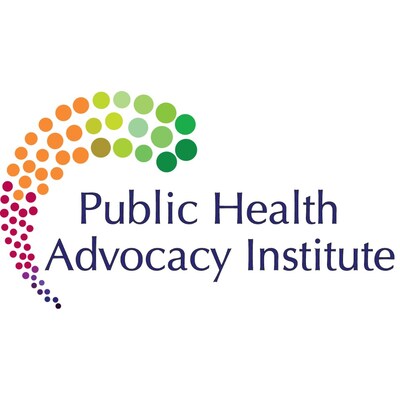PUBLIC HEALTH ADVOCACY INSTITUTE (PHAI) FILES CLASS ACTION AGAINST ABBOTT LABORATORIES OVER MARKETING OF "TODDLER MILK"
Rhea-AI Summary
Abbott Laboratories (NYSE: ABT) faces a class action lawsuit filed by the Public Health Advocacy Institute (PHAI) over allegedly misleading marketing of its 'toddler milk' products. The lawsuit targets Abbott's 'Go & Grow Toddler Drink' and 'Pure Bliss Toddler Drink,' claiming deceptive marketing practices targeting parents of children aged 12-36 months.
The complaint alleges Abbott positions these products as a natural progression from FDA-regulated infant formula, despite lacking FDA regulation and containing 22.9% and 20% added sugar respectively. The lawsuit highlights that toddler milk sales exceed $500 million annually, with advertising spending quadrupling between 2006-2015.
Medical experts, including the American Academy of Pediatrics, recommend against these products, advocating instead for healthy foods, water, and plain cow's milk for toddlers. The lawsuit seeks marketing practice changes and consumer refunds across multiple states.
Positive
- None.
Negative
- Class action lawsuit filed against Abbott for alleged deceptive marketing practices
- Products contain high levels of added sugar (20-22.9%) contrary to health guidelines
- Potential financial impact from legal proceedings and requested consumer refunds
- Risk of reputational damage in pediatric nutrition market
- Products lack FDA regulation unlike company's infant formula line
News Market Reaction – ABT
On the day this news was published, ABT declined 0.15%, reflecting a mild negative market reaction.
Data tracked by StockTitan Argus on the day of publication.
Labeled and displayed next to FDA-regulated infant formulas, toddler milk is being promoted as a healthy next stage in child nutrition, even as most experts recommend against its use.
According to the complaint, filed today, toddler milk is being deceptively marketed by Abbott as a natural and healthy next step after children outgrow FDA-regulated infant formulas. But toddler milk is not an FDA-regulated product; according to the lawsuit, it is essentially a marketing ploy by Abbott to keep parents and caregivers using Abbott products as their children age. Unlike FDA-regulated infant formulas, the lawsuit alleges, Abbott's "toddler milk" provides young children with added sugar that runs counter to well-established nutritional guidelines.
"Toddler milk," like FDA-regulated infant formulas, are milk powders with added nutrients, generally sold in the same size cans and tubs as FDA-regulated infant formulas. They are labeled similarly to FDA-regulated infant formulas and are sold on the same shelves in stores as FDA-regulated infant formulas, even though toddlers aged 12 to 36 months have different dietary needs from infants aged 0 to 12 months. Moreover, unlike FDA-regulated infant formulas, toddler milks are not regulated by the FDA.
The lawsuit alleges misleading labeling and marketing of two Abbott toddler milk products, "Go & Grow Toddler Drink by Similac" and "Pure Bliss Toddler Drink by Similac." The products are labeled "Stage 3," implying they are the next nutritionally recommended product for purchase after infant formula, which is numbered "Stage 1" and transitional formula, which is numbered "Stage 2."
In fact, toddler milk products are not nutritionally recommended at all. Most experts—including the American Academy of Pediatrics—recommend that children above twelve months be given healthy foods, water, and plain cow's milk, and that these products should not include the sorts of numerical steps that Abbott uses.
The new lawsuit seeks changes to Abbott's advertising and marketing practices, a return to consumers of money spent as a result of Abbott's fraudulent, unlawful and unfair marketing practices, as well as other remedies.
A Growth Market
The lawsuit alleges that, to make up for declining sales of infant formulas, Abbott and other makers of infant formula introduced products marketed as "transition formulas," "follow-on formulas," "weaning formulas," "toddler milks" and "toddler drinks." Available market data shows that advertising spending on such products quadrupled between 2006 and 2015. Since 2018, the sales of toddler milk nationwide have averaged more than
"Toddler milk is purposely marketed and labeled to look like infant formula," said Andrew Rainer of PHAI. "It sits on shelves next to infant formula, and is promoted as the next stage in child nutrition—all in an attempt to convince parents and caregivers to buy a product toddlers don't need."
"More than just unnecessary, toddler milk products can actually be harmful to a child's nutritional health," said Dr. George Fuchs, Professor of Pediatric Gastroenterology at the University of
"Parents and other caregivers need clear and accurate information in order to make proper healthy choices for their children," he added. "Toddler milk and similar products should be properly labeled and marketed to assist, rather than confuse, parents and caregivers."
Added Sugar, Glucose Syrup and Other Ingredients
Far from being the next step for infants after formula, toddler milk products contain higher saturated fat, sodium, and added sweeteners—including sugar, glucose syrup solids, and honey. According to the lawsuit, Abbott's toddler milk products each contain four grams of added sugar per serving—which is
According to a 2019 statement of national health and nutrition organizations published by the Robert Wood Johnson Foundation, the proper amount of added sugar for children above twelve months of age is zero.
Moreover, it is clear that parents and other caregivers are falling for the misleading marketing practices surrounding toddler milk. According to research conducted by the Rudd Center for Food Policy & Obesity at the University of
"Our research has found that common toddler milk marketing practices, including unsubstantiated nutrition-related claims and packages that look like infant formulas, mislead parents and other caregivers to believe that toddler milks provide nutritional benefits for their young children," said Dr. Jennifer L. Harris, Senior Research Advisor, Marketing Initiatives at the UConn Rudd Center for Food Policy and Health. "This is counter to recommendations by child health experts, including the American Academy of Pediatrics, the Academy of Nutrition and Dietetics, and the American Heart Association."
"The evidence is clear," she added, "consumption of sugar-sweetened beverages, such as toddler milks, negatively affects young children's diets and leads to related health risks."
Lead plaintiffs from
The case is: Castro et al v. Abbott Laboratories (Case No. 25-cv-377, N.D.
About the Public Health Advocacy Institute (PHAI)
The Public Health Advocacy Institute (PHAI) is a non-profit legal research center focused on public health law located at Northeastern University School of Law. In 2014, PHAI formed the Center for Public Health Litigation, a nonprofit law firm, which uses the civil justice system to improve public health by focusing on litigation targeting tobacco industry products, unhealthy foods, deceptive health marketing, and deceptive gambling practices.
To learn more about PHAI, visit phai.org.
Contact: | Public Health Advocacy Institute |
617-304-6052 | |
Andrew Rainer, arainer@phai.org | |
or | |
(212) 683-8100 | |
Sandra Prendergast, sprendergast@prcg.com |
![]() View original content to download multimedia:https://www.prnewswire.com/news-releases/public-health-advocacy-institute-phai-files-class-action-against-abbott-laboratories-over-marketing-of-toddler-milk-302350674.html
View original content to download multimedia:https://www.prnewswire.com/news-releases/public-health-advocacy-institute-phai-files-class-action-against-abbott-laboratories-over-marketing-of-toddler-milk-302350674.html
SOURCE Public Health Advocacy Institute








